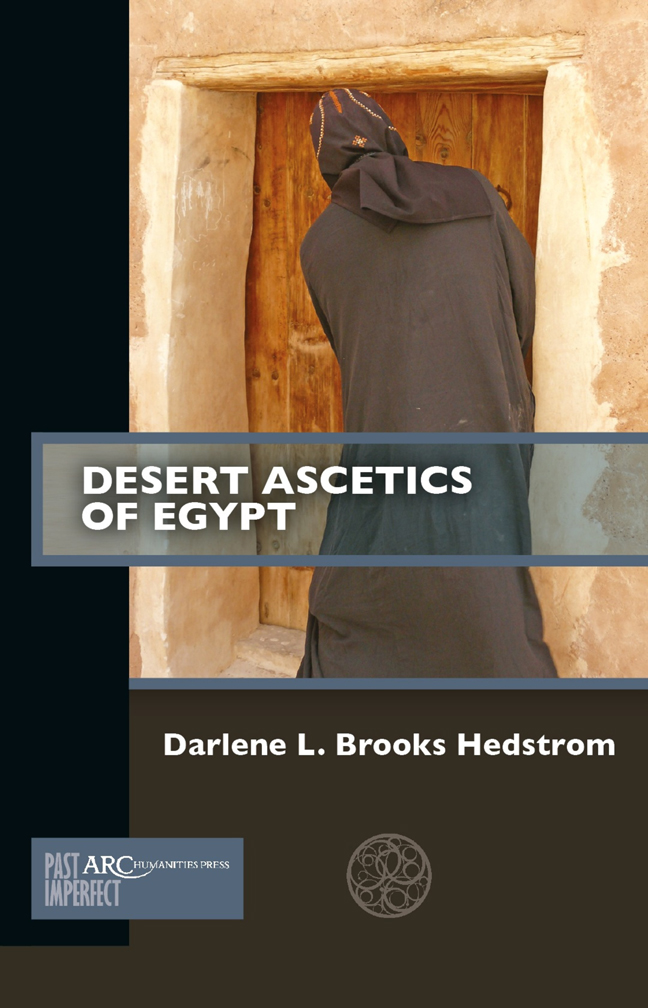Book contents
- Frontmatter
- Contents
- List of Illustrations
- Introduction: Travelling into the Desert
- Chapter 1 Desert Ascetics as Early Christian Celebrities
- Chapter 2 What Did the Desert Ascetics Teach and How Did They Live?
- Chapter 3 Who Was the First Desert Ascetic?
- Chapter 4 Monastic Literature, Letters, and Desert Ascetics
- Chapter 5 Archaeology of Early Egyptian Monasticism
- Chapter 6 Archaeology of Monastic Places
- Chapter 7 Monastic Archaeology and Monastic Things
- Conclusion: Reassembling a History of the Desert Ascetics of Egypt
- Further Reading
Chapter 3 - Who Was the First Desert Ascetic?
Published online by Cambridge University Press: 20 February 2024
- Frontmatter
- Contents
- List of Illustrations
- Introduction: Travelling into the Desert
- Chapter 1 Desert Ascetics as Early Christian Celebrities
- Chapter 2 What Did the Desert Ascetics Teach and How Did They Live?
- Chapter 3 Who Was the First Desert Ascetic?
- Chapter 4 Monastic Literature, Letters, and Desert Ascetics
- Chapter 5 Archaeology of Early Egyptian Monasticism
- Chapter 6 Archaeology of Monastic Places
- Chapter 7 Monastic Archaeology and Monastic Things
- Conclusion: Reassembling a History of the Desert Ascetics of Egypt
- Further Reading
Summary
Antony of Egypt (251–356) was Egypt’s most revered and celebrated monk. Considered the premier Desert Ascetic, Antony appears throughout monastic and Christian literature as a founder of the monastic movement, even though other Christians were already practising asceticism and living alone on the borders of Egyptian villages. Although Antony is not technically the first Desert Ascetic, he is considered the most recognized of the Desert Fathers.
Antony appears in 119 stories in the various collections, with thirty-eight sayings containing specific teachings attributed to him in the Alphabetic Sayings. The remaining eighty-one references illustrate the ways in which Antony legitimized the words or practices of other monks. We observe how his name builds the authority of others simply through association. In this chapter, I examine the life and memory of Antony of Egypt, whose story towers over all others in the Sayings.
We will examine three different sources: seven letters Antony wrote in Coptic; a Greek biography of Antony writ-ten by Athanasius (d. 373), Bishop of Alexandria; and the Sayings and other monastic stories that profile Antony. The Coptic letters are perhaps the least well-known of the three sources because, for many years, scholars questioned their authenticity and disregarded the letters as a source for early desert monasticism. Instead, Antony is known chiefly through Athanasius’s highly celebrated biography, the Life of Antony, written shortly after the monk’s death in the mid-fourth century. The biography became a best seller and was soon trans-lated from Greek into many other languages. The biography made Antony the most famous of the Desert Ascetics, and his reputation was further augmented by his appearance in the fifth- and sixth-century Sayings. We will look at the sources, in turn, to examine how Antony emerged as the first and most significant of the Desert Ascetics.
Antony the Letter Writer
Antony wrote seven undated letters to monastic communities under his care and direction. The letters were first written in Coptic; later copies exist in Arabic, Georgian, Latin, and Syriac. Although we do not possess any copies of the letters in Greek, the later Syriac and Georgian letters exhibit philological elements that reveal that they were based on earlier Greek manuscripts. Thus, the diverse corpus of Antony’s letters demonstrates the continued importance of his correspondence for later generations.
Scholars have known about Antony’s letters since Jerome first referenced them in 392.
- Type
- Chapter
- Information
- Desert Ascetics of Egypt , pp. 43 - 60Publisher: Amsterdam University PressPrint publication year: 2023



